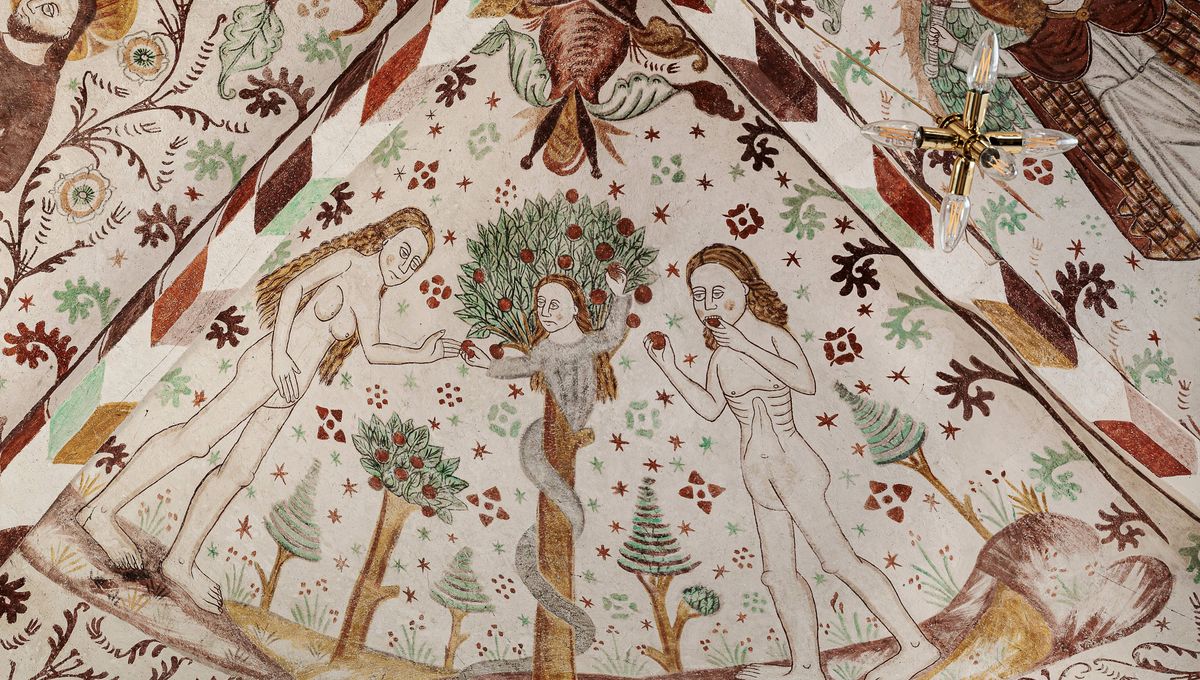
It’s one of the most widely known biblical scenes in history; even non-believers are likely familiar with it. It all starts with a serpent tempting Eve to eat the forbidden fruit of the Tree of Knowledge. Eve and later Adam gave in to this temptation and, upon doing so, they gained the knowledge of “good and evil”, a disobedience that resulted in them being rejected from Eden, introducing sin, suffering, and mortality for humankind.
That’s the story as most of us know it, but what was the fruit at the center of this original controversy? If you’re about to say apple, then you may need to think again.
Contrary to popular belief, the Book of Genesis in the Hebrew Bible does not actually specify what hung from the tree, preferring instead to simply call it a “fruit”; the text refers to it as “peri” (pronounced p’ree), a generic word for fruit in both biblical and modern Hebrew.
This, as you can imagine, has sparked generations of debate among early Christian and Jewish scholars as to what the fruit really was. These commentators proposed all sorts of possibilities, including the fruit being a fig, a grape, a pomegranate, or even a citron, but perhaps it was a pear, a mango, or even an avocado? Whatever it was, modern scholars agree that it certainly wasn’t an apple.
So where did this idea come from? Like many things related to the ancient or Classical age, we are not sure. However, there are some strong explanations.
First among them is the idea that it is simply a result of translation. This idea has been present since the 17th century and argues that the core of this stems from the Latin word for apple – “malum” – which is a homonym (words that have the same spelling or pronunciation but different meanings) of the word for evil. This would therefore make sense, as the fruit was responsible for humanity’s fall from grace and their subsequent expulsion from a state of bliss.
Once this idea took root, it became a popular feature of Western paintings and other recreations of the famous biblical scene. Therefore, the apple became the dreaded fruit that supposedly caused all our grief.
However, more recent scholarship has challenged this idea. According to Azzan Yadin-Israel, a professor of Jewish Studies and classics at the School of Arts and Sciences at Rutgers University, New Jersey, the Latin translation theory has no basis in Latin sources.
“I read through all the major (and many of the minor) medieval Latin commentators to the Book of Genesis, and pretty much no one refers to this play on words,” Yadin-Israel explained in a blog post in 2023.
“More perplexing, even as late as the 14th century, the commentators don’t identify the forbidden fruit with the apple. They still reference the fig and the grape, and sometimes other fruit species.”
In his research, Yadin-Israel examined artistic representations of the fall of Eve and Adam in an attempt to see when the apple first appeared in the scene. He eventually found the first apple in 12th-century France, which seeded the idea before it spread to other countries. According to his analysis, Latin authors usually referred to the forbidden fruit as a “pomum”, a word that means “fruit” or “tree fruit”. This spread to Old French, where “pom” was a generic word for “fruit”, but over time, the meaning of pom changed and became more specifically associated with “apple”.
“Once that change in meaning became widely accepted, readers of the Old French version of Genesis understood the statement ‘Adam and Eve ate a pom’ to mean ‘Adam and Eve ate an apple.’ At that point, they understood the apple to be the fruit that the Bible itself identified as the forbidden fruit and began representing it in these terms,” Yadin-Israel explained.
If this interpretation is correct, then the forbidden fruit’s association with apples has nothing to do with theological or even regional ecology, but is simply the result of linguistic changes. So the apple has been redeemed, and I think it is worthy of a thorough apology.
Source Link: How Do We Know The Bible's Forbidden Fruit Was An Apple?